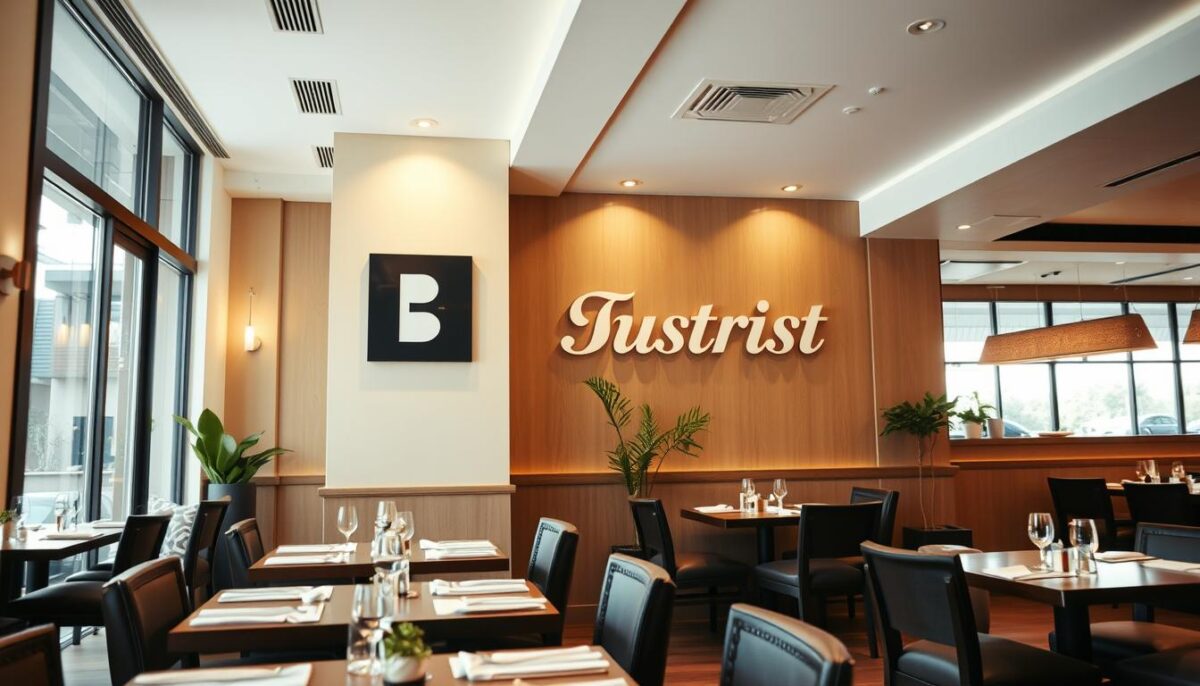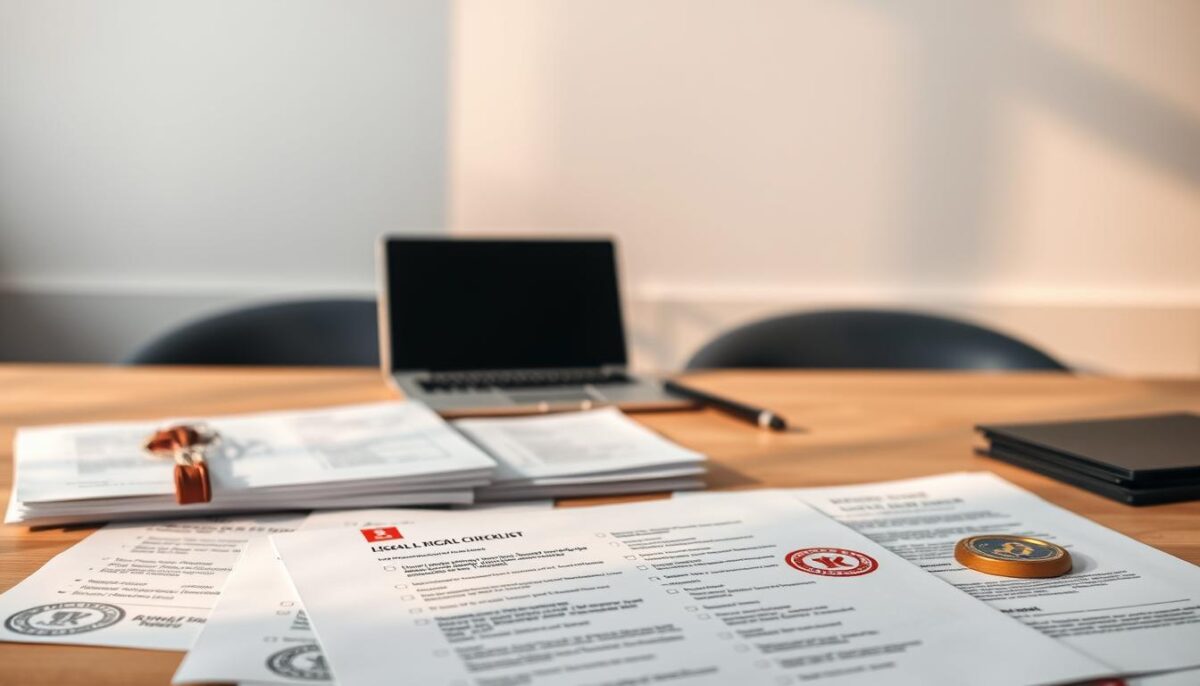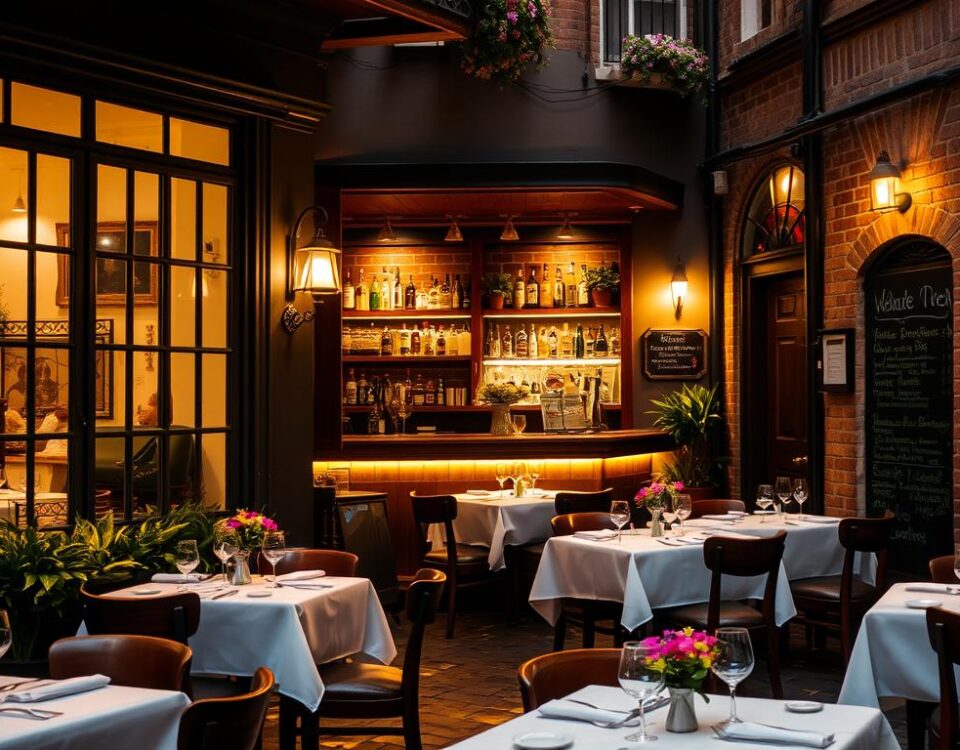
4 Common Food Safety Mistakes That Trigger Health Code Violations
July 15, 2025
6 Hidden Expenses That Are Killing Your Restaurant Profits
July 16, 2025As I reflect on my journey to opening my own restaurant, I recall the countless hours spent navigating the complex web of regulations and legal requirements. It was a daunting task, but one that ultimately proved crucial to the success of my business.
Did you know that a significant number of restaurants fail within the first year due to inadequate preparation and non-compliance with regulatory requirements? In fact, a study revealed that nearly 60% of new restaurants shut down within the first three years, with many citing regulatory issues as a primary cause.
Completing the necessary legal tasks before day one can make all the difference between a smooth launch and a costly delay. So, what are the essential steps to ensure your restaurant is fully compliant and ready for success?
Key Takeaways
- Understand the importance of a comprehensive legal checklist for your restaurant’s success.
- Learn how to navigate the complex regulatory landscape before opening.
- Discover the benefits of completing legal requirements early in the process.
- Find out how a thorough legal checklist can save time, money, and stress.
- Gain insights into creating a solid foundation for smooth operations on opening day.
Why a Comprehensive Restaurant Legal Checklist is Essential
A well-prepared restaurant legal checklist is the key to avoiding costly delays and ensuring a smooth opening. The restaurant industry is one of the most heavily regulated business sectors, with requirements spanning food safety, alcohol service, employment, taxes, and more.
The Reality of Restaurant Regulations
Restaurant regulations vary significantly by state and even by city, making it essential to create a checklist specific to your location. Many new restaurant owners underestimate the time required to obtain all necessary permits and licenses, which can take months rather than weeks. I’ve seen restaurants forced to delay openings or operate at limited capacity due to incomplete legal requirements, costing thousands in lost revenue.
How Legal Preparation Ensures a Smooth Opening
My comprehensive legal checklist helps identify all regulatory requirements early in the planning process, preventing last-minute scrambling. Legal preparation creates a foundation for smooth operations by ensuring all systems are compliant from day one. Having proper documentation and permits in place before opening protects your restaurant business from fines, closures, and reputation damage.
Organizing legal requirements in a systematic checklist reduces stress and prevents overlooking critical compliance areas. Restaurant owners who complete their legal checklist well in advance can focus their attention on menu development, staff training, and marketing during the crucial pre-opening phase. Understanding the full scope of restaurant regulations helps in budgeting accurately for permits, licenses, and professional services needed for compliance.
As emphasized by industry experts, “Compliance is key to a successful restaurant launch.” By prioritizing legal preparation, restaurant owners can ensure a successful and stress-free opening.
Establishing Your Restaurant Business Entity
Establishing a business entity for my restaurant was a foundational step that affected many aspects of the venture. It was crucial to understand the different structures available and choose the one that best suited my needs.
Choosing the Right Business Structure
Selecting the right business structure for my restaurant was a critical decision that impacted everything from taxation to personal liability. The most common structures for restaurants include sole proprietorship, partnership, limited liability company (LLC), and corporation. Each has its advantages and disadvantages. For instance, I chose an LLC for my restaurant because it provided liability protection while offering tax flexibility and simpler administration than a corporation.
The table below summarizes the key characteristics of each business structure:
| Business Structure | Liability Protection | Taxation | Administration |
|---|---|---|---|
| Sole Proprietorship | No | Personal Tax Return | Simple |
| Partnership | No | Personal Tax Return | Moderate |
| LLC | Yes | Flexible | Moderate |
| Corporation | Yes | Corporate Tax Return | Complex |
Registering Your Business Name and EIN
Registering my restaurant business required filing specific documents with my state’s secretary of state office and paying the associated fees. I discovered that securing my business name early was essential, as it needed to be unique within my state and available as a domain name for my restaurant website. Obtaining an Employer Identification Number (EIN) from the IRS was a straightforward online process that took only minutes but was required for hiring employees and opening business bank accounts.
I also created a dedicated filing system for all my business formation documents, which proved invaluable during subsequent permit applications. My attorney helped me draft an operating agreement that clearly defined ownership percentages, profit distribution, and management responsibilities. Additionally, I registered my restaurant with state tax authorities to establish accounts for sales tax, employment taxes, and other state-specific requirements.

Setting up proper business banking accounts and accounting systems from the beginning helped me maintain clean financial records required for compliance and future funding opportunities.
Securing Your Restaurant Location
Securing the perfect location for my restaurant was a complex process that involved more than just finding a space with good foot traffic. It required a thorough understanding of both commercial lease agreements and zoning requirements to ensure my business was compliant with local regulations from the outset.
Understanding Commercial Lease Agreements
Navigating a commercial lease agreement can be daunting, but it’s a critical step in securing your restaurant location. I discovered that finding the perfect restaurant location involves much more than just identifying a space with good foot traffic – it requires careful attention to zoning laws and lease terms. My commercial lease negotiation process took several weeks as I worked with my attorney to modify problematic clauses and secure favorable terms for my restaurant business. I made sure my lease explicitly permitted all the activities my restaurant would engage in, from food preparation to live music, to avoid future disputes with my landlord.
Understanding the building’s history and previous tenants helped me identify potential compliance issues before signing the lease. I also negotiated tenant improvement allowances that helped offset the costs of customizing the space to meet both my restaurant concept and legal requirements.
Zoning Requirements and Compliance
Before signing my lease, I thoroughly researched zoning requirements to confirm that a restaurant was permitted in my desired location and what specific restrictions might apply. I learned to verify that my location was properly zoned for my specific type of restaurant, including considerations for alcohol service, outdoor seating, and operating hours. Securing the necessary zoning approvals or variances required appearing before local planning boards and demonstrating how my restaurant would benefit the community. Ensuring compliance with zoning laws was crucial to avoiding costly fines or even having to relocate my business.
Essential Permits and Licenses for Your Restaurant
To legally operate a restaurant, you’ll need to navigate the complex world of permits and licenses. This process can be time-consuming, requiring applications to multiple agencies, but it’s crucial for ensuring your business is compliant with all regulations.
Business Operation Licenses
A basic business operation license from your city is typically the foundation for all other permits. This license usually requires proof of your business registration and location approval. It’s essential to understand the specific requirements for your area, as these can vary significantly.
Food Service Permits
Food service permits involve detailed health department applications, pre-opening inspections, and proof that your kitchen manager has proper food safety certification. Ensuring that your staff is trained and compliant with health regulations is critical for avoiding potential issues during inspections.
Liquor Licenses and Regulations
Liquor licenses vary dramatically by state and locality, with some areas having quota systems that make licenses scarce and expensive. The application process for a liquor license can be complex, requiring background checks, detailed floor plans, and proof of food sales projections. It’s also important to be aware of any public notices or community hearings that may be required as part of the process.
Creating a detailed calendar with all permit application deadlines, inspection dates, and renewal requirements can help ensure that nothing falls through the cracks. Some permits have prerequisite requirements, so understanding the sequence of applications is vital. For example, you may not be able to apply for your food service permit until your building permit is approved.
Budgeting for initial permit and license fees, as well as annual renewals, is essential for managing the ongoing operational expenses of your restaurant. Additionally, for specialty items like sidewalk café permits or entertainment licenses, you may need to work with additional departments or neighborhood associations.
Building relationships with permit clerks and inspectors can make the process smoother, as they often provide valuable guidance on navigating the requirements. By being proactive and informed, you can streamline the process of obtaining the necessary permits and licenses for your restaurant.
Health Department Requirements and Food Safety Compliance
Understanding and implementing health department requirements is a foundational step in establishing a reputable restaurant. Compliance with these regulations not only ensures a safe environment for customers but also protects the restaurant from potential legal issues.
Health Inspection Preparation
Preparing for a health inspection involves several key steps. First, creating detailed cleaning schedules and temperature monitoring systems helps maintain a clean and safe kitchen environment. Additionally, investing in proper food safety training for all kitchen staff is crucial. This training should cover critical control points and cross-contamination prevention.
- Designating a certified food protection manager who has completed an accredited food safety course.
- Implementing a complete food safety management system, including HACCP plans for high-risk food items.
- Ensuring proper kitchen layout to prevent cross-contamination between raw and ready-to-eat foods.
Food Handler Certification Requirements
Food handler certification is another critical aspect of food safety compliance. Restaurants must ensure that their staff understands and follows proper food handling procedures. This includes training on handwashing protocols and the importance of maintaining proper refrigeration temperatures.
- Establishing protocols for employee health reporting to prevent foodborne illness outbreaks.
- Understanding local health code requirements for grease traps, ventilation systems, and waste disposal.
By focusing on these areas, restaurants can ensure compliance with health department requirements and maintain a high standard of food safety.
Employment Laws and Staff Documentation
Navigating the complex landscape of employment laws is a critical step in establishing a successful restaurant business. As a restaurant owner, it’s essential to understand the various regulations that govern your interactions with staff, from hiring to termination.
Legal Hiring Practices
Creating legally compliant hiring practices is vital to avoid discrimination and ensure a fair process. This involves developing standardized interview questions and application forms that comply with anti-discrimination laws. Background check procedures must also be carefully designed to avoid bias.

Required Employee Documentation
Proper documentation is crucial for compliance with employment laws. This includes maintaining accurate records of employee information, such as I-9 verification forms to confirm work eligibility. An employee handbook is also essential, outlining workplace policies, including scheduling, breaks, and disciplinary procedures.
Labor Law Compliance
Restaurants face unique wage and hour requirements, particularly regarding tipped employees and overtime calculations. Setting up proper payroll systems from the beginning helps comply with tax withholding and record-keeping requirements. Training management on employment law essentials, such as preventing sexual harassment, is also crucial.
By understanding and complying with employment laws, restaurant owners can create a positive and productive work environment, reducing the risk of legal issues and enhancing overall operations.
My Complete Restaurant Legal Checklist Before Opening Day
A well-organized legal checklist was the backbone of my restaurant’s successful launch. As I navigated the complex process of opening a new restaurant, I understood that having a comprehensive and structured approach was essential to ensuring compliance with all legal requirements.
Pre-Opening Legal Timeline
Creating a pre-opening legal timeline was a critical step in my restaurant’s preparation. I mapped out a chronological plan, starting 12 months before opening day, to ensure that all necessary tasks were completed in the proper sequence. This timeline included key milestones such as applying for permits and licenses, conducting health inspections, and obtaining necessary certifications.
I made sure to account for typical processing times and dependencies between different approvals, allowing me to anticipate and mitigate potential delays. Regular check-in points were built into the timeline to review progress, address any delays, and adjust the schedule as needed to keep the opening on track.
Documentation Organization System
To manage the vast array of legal documents, inspection reports, and correspondence with regulatory agencies, I developed a robust documentation organization system. This system had both physical and digital components, ensuring that all critical information was easily accessible and securely stored.
The digital component included a standardized naming convention for files and a secure backup protocol to prevent the loss of critical documents. I also maintained a master contact list of regulatory officials, inspectors, and agency representatives involved in my restaurant’s approval process, making it easier to follow up on pending matters.
To further enhance my documentation system, I implemented a running log of all interactions with regulatory agencies. This log included dates, names of officials, and summaries of discussions, ensuring consistent follow-up and providing a clear audit trail.

By having a comprehensive legal checklist, a well-planned pre-opening timeline, and an efficient documentation organization system, I was able to ensure that my restaurant was fully compliant with all legal requirements, paving the way for a successful opening day.
Tax Obligations and Financial Compliance
As I navigated the complex world of restaurant management, I discovered that understanding tax obligations was crucial for financial compliance. Managing a restaurant involves multiple tax responsibilities that go beyond basic income taxes.
One of the primary tax obligations for any restaurant is sales tax. I learned that setting up proper sales tax collection systems before opening was essential, as I needed to charge the correct rates on different items (food vs. alcohol) and in different service scenarios (dine-in vs. takeout).
Sales Tax Requirements
To comply with sales tax requirements, I established a dedicated bank account for sales tax funds to ensure the money was available when payment was due and wasn’t accidentally used for operations. This step helped me avoid potential penalties and fines.
According to a study, “Businesses that fail to properly manage sales tax can face significant penalties, including fines and interest on unpaid taxes” (
). This emphasizes the importance of accurate sales tax management.
Payroll Taxes and Reporting
My payroll tax responsibilities included federal income tax withholding, Social Security and Medicare taxes, federal and state unemployment taxes, and workers’ compensation insurance. I created a tax calendar with all filing deadlines and payment due dates to avoid penalties for late submissions.
Understanding tip reporting requirements was particularly important in my restaurant business, as I needed systems to track both directly tipped employees and tip pooling arrangements. I consulted with a restaurant-specialized accountant to set up proper accounting systems that would facilitate accurate tax reporting and maximize legitimate deductions.
My point-of-sale system was configured to generate the specific reports needed for various tax filings, saving significant time during reporting periods. I also learned about industry-specific tax credits and incentives, such as the FICA tip credit, that could reduce my restaurant’s overall tax burden.
Establishing good recordkeeping practices from day one protected my business during potential audits and simplified the annual tax preparation process. By staying on top of these tax obligations, I was able to maintain financial compliance and focus on running a successful restaurant.
Additional Legal Considerations for Restaurant Owners
Opening a restaurant involves not only perfecting my menu but also understanding the various legal considerations that can impact my customers’ experience and my business as a whole. As I navigated the complexities of running a successful restaurant, I discovered several key areas that required attention beyond the basic legal setup.
ADA Compliance and Accessibility
Ensuring ADA compliance involved more than just wheelchair accessibility; it included considerations for service animals, website accessibility, and reasonable accommodations for both customers and employees. My restaurant needed to include accessibility features and accurate information about its physical accessibility to properly serve all potential customers.
Intellectual Property Protection
I protected my restaurant’s intellectual property by trademarking my business name and logo, and creating confidentiality agreements for signature recipes and processes. This step was crucial in maintaining my competitive edge and preventing unauthorized use of my business’s unique identifiers.
Music Licensing and Copyright Compliance
Playing background music in my restaurant required proper licensing through organizations like ASCAP, BMI, and SESAC to avoid copyright infringement claims. Understanding music licensing requirements was essential to creating the right ambiance for my customers without exposing my business to legal risks.
Beyond these considerations, I also developed privacy policies for customer information collected through my website, reservation systems, and loyalty programs to comply with data protection laws. My restaurant needed appropriate insurance coverage, including liquor liability insurance, food contamination coverage, and cyber liability protection.
I established protocols for handling health department inspections, including designating a specific staff member to accompany inspectors and document findings. Understanding the legal implications of delivery services, catering operations, and special events helped me expand my restaurant’s offerings while maintaining compliance.
By addressing these additional legal considerations, I was able to create a more inclusive and secure dining experience for my customers, while also protecting my business from potential legal issues.
Conclusion
After navigating the complex process of opening a restaurant, I’ve learned that a well-planned legal checklist is essential. Completing my restaurant legal checklist before opening day was the foundation for my business’s long-term success and smooth operations.
The restaurant industry is heavily regulated to protect the health and safety of customers and staff. Embracing these standards rather than fighting them improved my food service quality. My comprehensive legal preparation allowed me to focus on creating exceptional dining experiences rather than scrambling to address compliance issues after opening.
I recommend that new restaurant owners view legal compliance not as a burden but as a way to demonstrate their commitment to quality and safety. By doing so, they can ensure a solid reputation in their community and a successful business. My team appreciates working in an environment where legal responsibilities are clearly defined and systems are in place to maintain compliance, making our service to customers top-notch.
FAQ
What are the most critical licenses and permits required to open a restaurant?
To operate a restaurant, you’ll need to secure various licenses and permits, including a business operation license, food service permit, and potentially a liquor license, depending on your state’s regulations and the type of service you plan to offer.
How do I ensure compliance with health department requirements?
To meet health department standards, I focus on proper food handling, preparation, and storage practices. Regular health inspections and maintaining a food handler certification are also crucial steps in ensuring a clean and safe environment for my customers.
What employment laws must I adhere to when hiring restaurant staff?
As a restaurant owner, I’m responsible for following labor laws, including minimum wage requirements, overtime pay, and workers’ compensation insurance. I also need to maintain accurate employee records and adhere to anti-discrimination laws during the hiring process.
What is the importance of having a documentation organization system in place?
A well-organized documentation system helps me keep track of essential records, such as employee files, tax documents, and licenses. This ensures I’m prepared for audits and can efficiently manage my restaurant’s operations.
How can I protect my restaurant’s intellectual property?
To safeguard my restaurant’s intellectual property, I consider trademarking my business name and logo. I also take steps to protect my website content and any proprietary recipes or cooking methods.
What are the key tax obligations for my restaurant business?
As a restaurant owner, I’m responsible for collecting and remitting sales tax on food and beverage sales. I also need to withhold and pay payroll taxes for my employees, as well as report and pay my business’s tax obligations.



